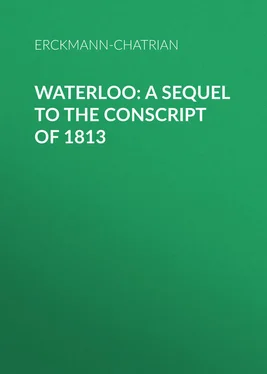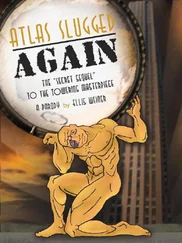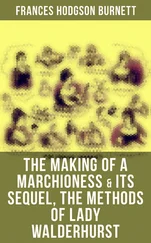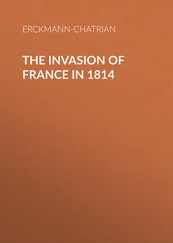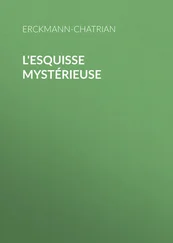Erckmann-Chatrian - Waterloo - A sequel to The Conscript of 1813
Здесь есть возможность читать онлайн «Erckmann-Chatrian - Waterloo - A sequel to The Conscript of 1813» — ознакомительный отрывок электронной книги совершенно бесплатно, а после прочтения отрывка купить полную версию. В некоторых случаях можно слушать аудио, скачать через торрент в формате fb2 и присутствует краткое содержание. Жанр: foreign_antique, foreign_prose, Историческая проза, на английском языке. Описание произведения, (предисловие) а так же отзывы посетителей доступны на портале библиотеки ЛибКат.
- Название:Waterloo: A sequel to The Conscript of 1813
- Автор:
- Жанр:
- Год:неизвестен
- ISBN:нет данных
- Рейтинг книги:5 / 5. Голосов: 1
-
Избранное:Добавить в избранное
- Отзывы:
-
Ваша оценка:
- 100
- 1
- 2
- 3
- 4
- 5
Waterloo: A sequel to The Conscript of 1813: краткое содержание, описание и аннотация
Предлагаем к чтению аннотацию, описание, краткое содержание или предисловие (зависит от того, что написал сам автор книги «Waterloo: A sequel to The Conscript of 1813»). Если вы не нашли необходимую информацию о книге — напишите в комментариях, мы постараемся отыскать её.
Waterloo: A sequel to The Conscript of 1813 — читать онлайн ознакомительный отрывок
Ниже представлен текст книги, разбитый по страницам. Система сохранения места последней прочитанной страницы, позволяет с удобством читать онлайн бесплатно книгу «Waterloo: A sequel to The Conscript of 1813», без необходимости каждый раз заново искать на чём Вы остановились. Поставьте закладку, и сможете в любой момент перейти на страницу, на которой закончили чтение.
Интервал:
Закладка:
"Why, Joseph! have you been hurt?"
"No, no," I replied, "but I have seen a frightful thing." And I commenced to cry as I told him of the affair. He walked up and down with his hands behind his back, stopping from time to time to listen to me, while his lips contracted and his eyes sparkled.
"Joseph," said he, "these men provoked them?"
"No, Mr. Goulden."
"It is impossible, they must have invited it. The devil! we are not savages! The rascals must have had some other reason than the cockades for attacking them!"
He could not believe me, and it was only after telling him all the details twice over that he said at last:
"Well! since you saw it with your own eyes I must believe you. But it is a greater misfortune than you think, Joseph. If this goes on, if they do not put a strong check on these good-for-nothings, if the Pinacles are to have the upper hand, honest people will open their eyes."
He said no more, for the procession was finished and Aunt Grédel and Catherine had come.
We dined together, aunt was happy and Catherine too, but even the pleasure it gave me to see them, could not make me forget what I had witnessed, and Mr. Goulden was very grave too.
At night, I went with them to the "Roulette," and then I embraced them and bade them good-night. It might have been eight o'clock, and I went home immediately. Mr. Goulden had gone to the "Homme Sauvage" brewery, as was his habit on Sunday, to read the gazette, and I went to bed. He came in about ten, and seeing my candle burning on the table, he pushed open the door and said:
"It seems that they are having processions everywhere. You see nothing else in the gazette." And he added that twenty thousand prisoners had returned, and that it was a happy thing for the country.
V
The next morning all the clocks in the village were to be wound up, and as Mr. Goulden was growing old he had intrusted that to me, and I went out very early. The wind had blown the leaves in heaps against the walls during the night, and the people were coming to take their torches and vases of flowers from the altars. All this made me sad, and I thought, "Now that they have performed their service for the dead, I hope they are satisfied. If the permit would come, it would be all very well, but if these people think they are going to amuse us with psalms they are mistaken. In the time of the Emperor we had to go to Russia and Spain it is true, but the ministers did not leave the young people to pine away. I would like to know what peace is for if it is not to get married!"
I denounced Louis XVIII., the Comte d'Artois, the émigrés , and everybody else, and declared that the nobles mocked the people.
On going home I found that Mr. Goulden had set the table, and while we were eating breakfast, I told him what I thought. He listened to my complaint and laughed, saying, "Take care, Joseph, take care; you seem to me as if you were becoming a Jacobin."
He got up and opened the closet, and I thought he was going to take out a bottle, but, instead, he handed me a thick square envelope with a big red seal.
"Here, Joseph," said he, "is something that Brigadier Werner charged me to give you."
I felt my heart jump and I could not see clearly.
"Why don't you open it?" said Father Goulden.
I opened it and tried to read, but had to take a little time. At last I cried out, "It is the permit."
"Do you believe it?" said he.
"Yes, it is the permit," I said, holding it at arm's length.
"Ah! that rascal of a minister, he has sent no others," said Father Goulden.
"But," I said, "I know nothing of politics, since the permit has come, the rest does not concern me."
He laughed aloud, saying, "Good, Joseph, good!"
I saw that he was laughing at me, but I did not care.
"We must let Catherine and Aunt Grédel know immediately," I cried in the joy of my heart; "we must send Chaudron's boy right away."
"Ha! go yourself, that will be better," said the good man.
"But the work, Mr. Goulden?"
"Pshaw! pshaw! at a time like this one forgets work! Go! child, stir yourself, how could you work now? You cannot see clearly."
It was true I could do nothing. I was so happy that I cried, I embraced Mr. Goulden, and then without taking time to change my coat I set off, and was so absorbed by my happiness, that I had gone far beyond the German gate, the bridge and the outworks and the post station, and it was only when I was within a hundred yards of the village and saw the chimney and the little windows that I recalled it all like a dream, and commenced to read the permit again, repeating, "It is true, yes, it is true; what happiness! what will they say!"
I reached the house and pushed open the door exclaiming, "The permit!"
Aunt Grédel in her sabots was just sweeping the kitchen, and Catherine was coming downstairs with her arms bare, and her blue kerchief crossed over her breast; she had been to the garret for chips, and both of them on seeing me and hearing me cry, "the permit!" stood stock still. But I repeated, "the permit!" and Aunt Grédel threw up her hands as I had done, exclaiming, "Long live the King!"
Catherine, quite pale, was leaning against the side of the staircase; I was at her side in an instant and embraced her so heartily that she leaned on my shoulder and cried, and I carried her down, so to speak, while aunt danced round us, exclaiming, "Long live the King! long live the Minister!"
There was never anything like it. The old blacksmith, Ruppert, with his leather apron on and his shirt open at the throat, came in to ask what had happened.
"What is it, neighbor?" said he, as he held his big tongs in his hands and opened his little eyes as wide as possible.
This calmed us a little, and I answered, "We have received our permit to marry."
"Ah, that is it? is it? now I understand, I understand."
He had left the door open and five or six other neighbors came in – Anna Schmoutz, the spinner, Christopher Wagner, the field-guard, Zaphéri Gross, and several others, till the room was full. I read the permit aloud; everybody listened, and when it was finished Catherine began to cry again, and Aunt Grédel said:
"Joseph, that minister is the best of men. If he were here, I would embrace him and invite him to the wedding; he should have the place of honor next Mr. Goulden."
Then the women went off to spread the news, and I commenced my declarations anew to Catherine, as if the old ones went for nothing; and I made her repeat a thousand times that she had never loved any one but me, till we cried and laughed, and laughed and cried, one after the other, till night. We heard Aunt Grédel, as she attended to the cooking, talking to herself and saying, "That is what I call a good king;" or, "If my good Franz could come back to the earth he would be happy to-day, but one cannot have everything." She said, also, that the procession had done us good; but Catherine and I were too happy to answer a word. We dined, and lunched, and took supper without seeing or hearing anything, and it was nine o'clock when I suddenly perceived it was time to go home. Catherine and Aunt Grédel and I went out together, the moon was shining brightly, and they went with me to the "Roulette," and while on the way we agreed that the marriage should take place in fifteen days. At the farm-house, under the poplars, aunt kissed me, and I kissed Catherine, and then watched them as they went back to the village. When they reached home they turned and kissed their hands to me, and then I came back to town, crossed the great square, and got home about ten o'clock. Mr. Goulden was awake though in bed, and he heard me open the door softly. I had lighted my lamp and was going to my chamber, when he called, "Joseph!"
I went to him, and he took me in his arms and we kissed each other, and he said:
Читать дальшеИнтервал:
Закладка:
Похожие книги на «Waterloo: A sequel to The Conscript of 1813»
Представляем Вашему вниманию похожие книги на «Waterloo: A sequel to The Conscript of 1813» списком для выбора. Мы отобрали схожую по названию и смыслу литературу в надежде предоставить читателям больше вариантов отыскать новые, интересные, ещё непрочитанные произведения.
Обсуждение, отзывы о книге «Waterloo: A sequel to The Conscript of 1813» и просто собственные мнения читателей. Оставьте ваши комментарии, напишите, что Вы думаете о произведении, его смысле или главных героях. Укажите что конкретно понравилось, а что нет, и почему Вы так считаете.
